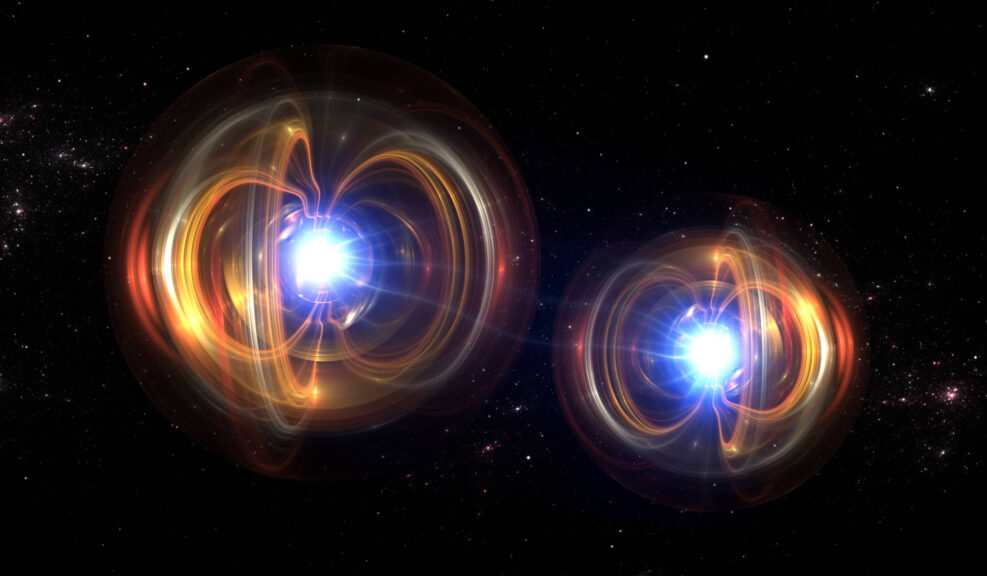
CategoryTheism


Our Universe Works, Yet Doesn’t Make Sense … And So?
How can so much uncertainty lie placidly at the basis of our universe but disrupt nothing in particular? We even build better computers because of itProminent science writer John Horgan finds himself stumped (and somewhat vexed?) by quantum mechanics — the behavior of the fundamental particles of the universe: Quantum principles underpin our modern scientific worldview and much of our technology, including the laptop on which I’m writing these words. And yet a century after its invention, physicists and philosophers cannot agree on what quantum mechanics means. John Horgan, “Quantum Mechanics, Plato’s Cave and the Blind Piranha,” Cross-Check, May 22, 2024 He has a point. How can so much uncertainty lie placidly at the basis of our universe but disrupt nothing in particular? In fact, as he says, we build better computers using its principles. Why doesn’t fundamental uncertainty cause us to build worse ones Read More ›

Why Doesn’t God Just Do Something Dramatic to Prove He Exists?
The Divine Hiddenness argument for atheism, espoused by Matt Dillahunty, is that, if a perfectly loving God existed, reasonable unbelief would be impossible
Are the New Atheists Losing Their “Cool” Quotient?
And taking Darwinism with them? A look at what’s happened in the last two decades would seem to suggest that
Why Is Theology the Most Important Empirical Science?
Arguing pro or con about the existence of God has resulted in many successful and/or widely accepted theories in science
Why Logician Kurt Gödel Believed in Life After Death
He saw human folly as an opportunity to reform and learn, because our souls are immortal whether we like it or not
If Science Were Just Bookkeeping, Fine-Tuning Wouldn’t Matter
Astrophysicist Marcelo Gleiser wishes we would just quit asking questions about why the universe is fine-tuned — as if we could…
Can Cells Learn? Can Molecules Communicate? What We Are Learning…
We are learning that the world of life is full of intelligence that we just did not know about
“Emergence”: The College Level Version of “We Don’t Know How”
The word often permits the improbable to be considered probable for the purposes of sounding like science without providing any
Philosophers: Religion, Not Nature, Made Us Human
Victor Kumar and Richmond Campbell argue that many very ancient human types had human minds; religion is the missing ingredientThe philosophers who make this claim are not evangelists. Victor Kumar is director of the Mind and Morality Lab at Boston University and Richmond Campbell is the George Munro professor of philosophy emeritus at Dalhousie University. In an essay at IAI News, adapted from their book, A Better Ape: The Evolution of the Moral Mind and How it Made Us Human (Oxford University Press 2022), they argue that “it was the cultural institution of religion, and its ability to create large tribes, that made us into modern humans.” Sometimes there is a story in titles. The official title of this piece is “Nature didn’t make us human, culture did.” The subtitle is “How religion made us a successful species.” But Read More ›

Why Philosopher Quentin Smith Saw Belief in God as Unscientific
Reader Laszlo Bencze looks at his list of reasons for thinking so and offers some thoughtful commentsIn the first part of the discussion between Robert Lawrence Kuhn and Western Michigan University philosopher Quentin Persifor Smith (1952–2020) at Closer to Truth, “What Does a Fine-Tuned Universe Mean?” (Aug 31, 2022), Dr. Smith asserted that — while physicists may write about the fine-tuning of our universe in books aimed at the public — they do not discuss it in peer reviewed journals. Jonathan Bartlett supplied a number of references to such discussions in journals. In this second part of the discussion, Kuhn gave the floor to Dr. Smith to explain why he thought that belief in God is unscientific. A partial transcript follows, with some notes and comments interspersed: Quentin Persifor Smith: (7:20) But I think the real Read More ›